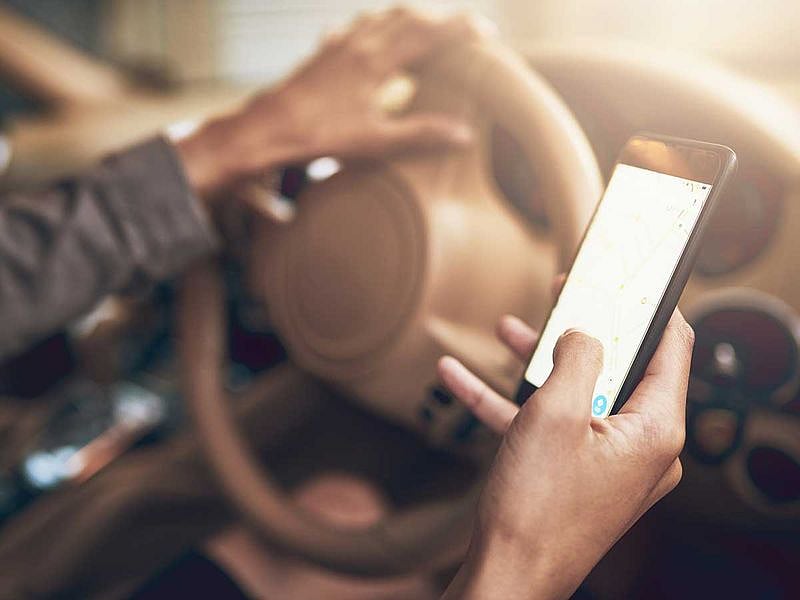Abu Dhabi Police have warned against the dangers of using mobile phones while driving, describing it as the most dangerous traffic violation on the roads. New research shows that distracted drivers are four times more likely to be involved in a crash than those driving under the influence of drugs or alcohol.
According to Major Engineer Mohammed Hamad Al Eisai, Director of the Traffic Simulation and Forecasting Branch at Abu Dhabi Police, findings from a global traffic safety study indicate that a driver distracted by a phone or any other activity is eight times more likely to crash than a fully attentive driver.
“The study reveals that phone distraction is one of the primary causes of road accidents worldwide, not just in Abu Dhabi,” Al Eisai said. He added: “When a driver uses a phone, their attention and situational awareness drop sharply, impairing their ability to react to road hazards.”
Dh800 fine and four black points
The Ministry of Interior recorded six accidents in Abu Dhabi in 2024 directly linked to phone use behind the wheel, alongside 510 other accidents caused by general driver distraction.
Under UAE Federal Traffic Law, the penalty for using a mobile phone or being otherwise distracted while driving is a Dh800 fine and four black points.
AI cameras tackle dangerous behaviour
Al Eisai said Abu Dhabi Police have taken systematic steps to combat such behaviours using artificial intelligence and automated monitoring systems. Since 2021, smart cameras equipped with AI algorithms have been deployed across the emirate’s roads to detect two major offences: not wearing seat belts and using mobile phones while driving. The technology can distinguish between drivers engaging in these violations, allowing the system to automatically issue fines.
“Seat belt and phone-use violations are among the most serious because of their direct link to injuries and fatalities,” he explained. “Our research found that nearly 80 per cent of accident victims were not wearing seat belts at the time of the crash.” He added that enforcing seat belt compliance can significantly reduce traffic casualties, lower the risk of severe injury, and encourage safer driving habits.
Road safety strategy and operational measures
Al Eisai highlighted that Abu Dhabi Police’s road safety strategy is renewed every five years, adapting to evolving traffic behaviours and technological advances. He pointed to the integration of AI, real-time surveillance, and proactive awareness campaigns as key pillars of the emirate’s approach to traffic safety.
Explaining the operational side, he said the Operations Room serves as the central hub for managing accident reports. It receives alerts through emergency calls or live camera feeds and deploys the nearest patrols via GPS tracking systems. Depending on the severity of the incident, police coordinate with ambulance and civil defense teams to ensure a swift response. The time between receiving a report and the arrival of patrols is tracked as a response-time indicator for both traffic and criminal incidents.
Public awareness
Abu Dhabi Police have coupled enforcement with education, launching public campaigns to encourage safer driving habits. The department urged motorists to stay fully focused on the road, avoid all distractions—including mobile phones—and never stop in the middle of the road, regardless of the reason. In cases where a vehicle cannot be moved, drivers are instructed to call 999 (Command and Control Center) for immediate assistance.
“Attention and anticipation are the keys to avoiding road surprises,” a statement from the Traffic and Patrols Directorate said. “A moment of distraction can result in tragic outcomes, serious injury, death, or legal liability.”
Sign up for the Daily Briefing
Get the latest news and updates straight to your inbox
Network Links
GN StoreDownload our app
© Al Nisr Publishing LLC 2026. All rights reserved.
